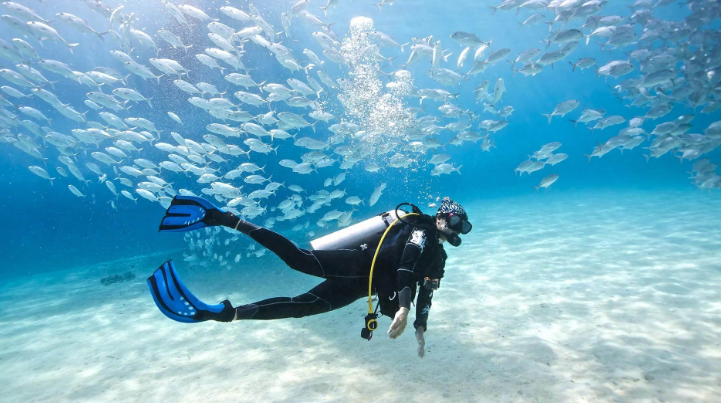Great diving experience is a function of great diving skills. To enjoy scuba diving to the fullest, deem it fit as a matter of importance, you need to master all the basic skills and intricacies. A great number of divers spend months if not years learning the basics. But the big story line here is that you can master all the skills in this quick guide. Continue to read.
Food for thought
This is particularly useful for divers who are having a hard time going underwater all the time. When you try to go get down, the air leaves your lungs, thus paving the way for you to gain more weight- at this stage, always assume that you are becoming heavier, don’t be breathing out heavily and as you continue to get down, look fixedly beneath you. That will really do and before you know it, you will be far down more than you can envisage.
Slow and steady wins the race
As we have pointed out before, the primary purpose of diving is to have fun. For that, you have to dive very slowly so that you don’t scare away aquatic lives which can give you some fascinating sight, thus paving the way for you to keep your fun cool and locked in. This will also ease your buoyancy test performance.
Get a sharpie
In the community cooler are your water cups and bottles. As you continue to dive, you need to mark them both. This is where a sharpie comes in handy. Keep it well so that it won’t damage some of your equipment.
Plan so that you don’t plan to fail
The best your diving coach or anyone giving you tips and training you on diving can do for you is to tell you how to do diving right. But they won’t be going underwater with you. That said, when you have your mind made up to go underwater, take some time out to do some homework about the whole scenario. And most importantly, don’t depend on your laptop or computer- the battery could go down any time and it will get shut out.
Equipment standard
Before you start going underwater, you need to be able to differentiate between equipment type. There are several types of cylinders used by divers. The most common among them all is a standard 80 cylinder which is made of aluminium. Its buoyancy is more than 4.4 higher than compact 80s sort of cylinders. A working pressure is mark on a cylinder neck. To figure out which type yours is you check the pressure to see what is written on it. A normal aluminium cylinder has 3000 psi inscribed on it. On the other hand, the figure you will find in others is different. quite a handful of the devices comes with 3300 psi. You can enjoy diving with the latter but always go a standard cylinder.
Surface buoyancy test
To safely do a check on buoyancy, try to maintain an upright position in the water keep air out of the buoyancy compensator device popular known as BCD, have your back leaned slightly, keep the inflator pipe as high as possible above the water, have your fins crossed and breath normally.
